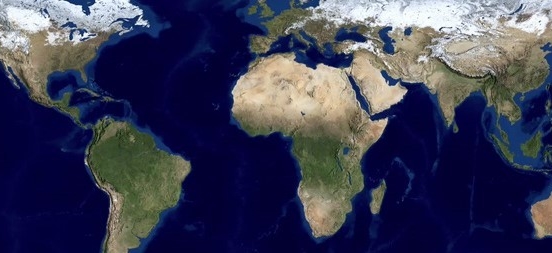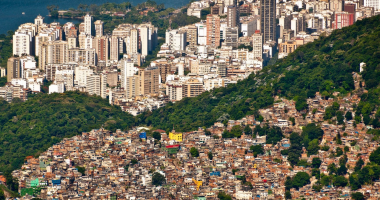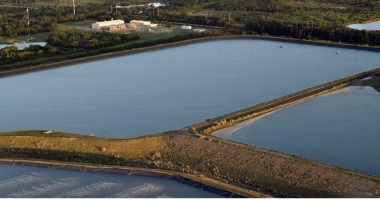Climate, Health and Equity Brief
Endless Summers, Stifled Trees and Coronavirus
March 6, 2020

|
Hot Topic: Acceleration. Several disturbing new studies this week show that some climate impacts are evolving even faster than anticipated. In Australia, scientists have found that summers are now 31 days longer than they were just 20 years ago, fueling serious concerns about the threats posed by intensifying heat waves and longer brush fire seasons.
In Africa, a 10-year study of the world’s second-largest contiguous rainforest found that heat and drought are decreasing the ability of rainforests to capture carbon. Alarmingly, the study predicts that by 2035, trees in the Amazon won’t absorb any carbon dioxide at all, and by mid-century, tropical forests in Africa, the Amazon and Asia will release more carbon dioxide than they absorb.
And as COVID-19 accelerates its spread around the world, closed schools, canceled flights, and empty shelves show that people are willing to take immediate action in the face of an imminent threat that receives worldwide media attention. Unfortunately, a new study by Media Matters found that while broadcast news coverage of climate change increased by 68% from 2018-2019, the networks still dedicated less than four hours of coverage combined to the existential threat last year, a fact that likely contributes to a troubling complacency on the topic.
—Matt & Traci, GMMB
Health
A new report found that Australian summers are now twice as long as their winters, raising concerns for more deadly heat waves and less time to implement bushfire management strategies during the off-season. (The Guardian)
A new study revealed that tropical forests, which have historically served as “carbon sinks,” could soon turn into a source of carbon pollution due to increasingly warm temperatures that stifle proper tree growth. (The Washington Post)
According to a new study, outdoor air pollution decreases life expectancy by an average of three years and causes 8.8 million early deaths per year worldwide, twice the figure from prior estimates. (The Guardian)
Media coverage of the threat of climate change has been scant in comparison to coronavirus, with broadcast networks airing less than four hours of climate coverage combined in 2019. (Our Daily Planet, Grist)
Equity
The new Environmental Justice for All Act from House Democrats aims to establish funds to transition minority communities away from fossil fuel dependency and confront the legacy of environmental racism that excludes minority voices from government decision-making. (EcoWatch)
A first-of-its-kind report explores how gender affects the way a person experiences climate change, concluding that gender-based dynamics must be taken into account in order to develop climate resilience policies that will protect everyone. (Sierra Club)
Politics & Economy
According to new research, housing markets that overlook climate risks have overvalued 3.8 million homes in the U.S. by a total of $34 billion, but most buyers are unaware due to a lack of disclosure requirements around flooding in most states. (Bloomberg)
Several U.S. states are moving to block cities from banning natural gas, a fossil fuel made up primarily of methane, which is short-lived yet exponentially more powerful than CO2 at trapping heat in the atmosphere. (Reuters)
A Trump administration official at the Department of the Interior inserted climate denial and debunked claims into at least nine official scientific reports in order to steer critical climate policy decisions. (The New York Times)
Action
A New York City startup is developing a lab-grown alternative to palm oil, which is widely used in consumer products and has an intensive production process that drives deforestation and carbon dioxide emissions. (Fast Company)
General Motors has begun a historic move to electrify its fleet, announcing that ten new models of electric vehicles—mostly trucks and SUVs—and will go on sale next year. (Axios)
Horizon, the world’s largest USDA-certified brand of organic dairy products, has committed to net-zero emissions across their production, packaging and distribution practices by 2025. (MarketWatch)
Kicker
With the Democratic presidential contest narrowed to a two-man race between Joe Biden and Bernie Sanders, check out this in-depth comparison of their climate plans.
“I think calling it climate change is rather limiting, I would rather call it the everything change.”
-Margaret Atwood

)





